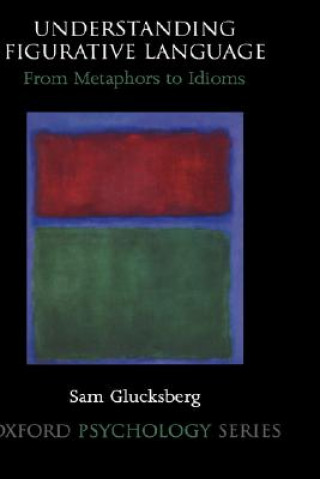
Kod: 04514063
Understanding Figurative Language
Autor Sam Glucksberg
This book examines how people understand utterances that are intended figuratively. Traditionally, figurative language such as metaphors and idioms has been considered derivative from more complex than ostensibly straightforward l ... więcej
- Język:
 Angielski
Angielski - Oprawa: Twarda
- Liczba stron: 144
Wydawca: Oxford University Press Inc, 2001
- Więcej informacji o książce

287.24 zł
Zwykle: 322.34 zł
Oszczędzasz 35.10 zł

Dostępna w małych ilościach
Wysyłamy do 24 godzin
Potrzebujesz więcej egzemplarzy?Jeżeli jesteś zainteresowany zakupem większej ilości egzemplarzy, skontaktuj się z nami, aby sprawdzić ich dostępność.
Dodaj do schowka
Zobacz książki o podobnej tematyce
-

Constructive Anatomy
40.52 zł -23 % -

Animal Anatomy for Artists
406.31 zł -

Human Anatomy for Artists
446.04 zł -

Power of Passive Investing
120.98 zł -4 % -

Understanding Semantics
296.21 zł -

Figures of Speech
176.43 zł -

Fundamentals of Language
599.09 zł -4 % -

Midwest Studies in Philosophy V25 - Figurative Language
276.15 zł -

Know Thyself
146.69 zł -

Lost Days
77.66 zł -

Abraham Lincoln, a History
197.71 zł -

The Missing Playbook
69.96 zł -10 % -

Wallace Stevens: Poetry, Philosophy, and Figurative Language
374.86 zł -
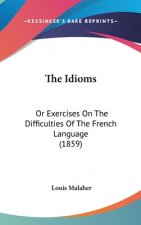
Idioms
221.13 zł
Bon podarunkowy: Radość gwarantowana
- Podaruj bon o dowolnej wartości, a my się zajmiemy resztą.
- Bon podarunkowy dotyczy całej naszej oferty.
- Możesz wydrukować elektroniczny bon z e-maila a następnie przekazać go obdarowanemu.
- Ważność bonu wynosi 12 miesięcy od daty wystawienia.
Więcej informacji o Understanding Figurative Language
 Opis
Opis
This book examines how people understand utterances that are intended figuratively. Traditionally, figurative language such as metaphors and idioms has been considered derivative from more complex than ostensibly straightforward literal language. Glucksberg argues that figurative language involves the same kinds of linguistic and pragmatic operations that are used for ordinary, literal language. Glucksberg's research in this book is concerned with ordinary language: expressions that are used in daily life, including conversations about everyday matters, newspaper and magazine articles, and the media. Metaphor is the major focus of the book. Idioms, however, are also treated comprehensively, as is the theory of conceptual metaphor in the context of how people understand both conventional and novel figurative expressions. A new theory of metaphor comprehension is put forward, and evaluated with respect to competing theories in linguistics and in psychology. The central tenet of the theory is that ordinary conversational metaphors are used to create new concepts and categories. This process is spontaneous and automatic. Metaphor is special only in the sense that these catagories get their names from the best examples of the things they represent, and that these categories get their names from the best examples of those categories. Thus, the literal "shark" can be a metaphor for any vicious and predatory being, from unscrupulous salespeople to a murderous character in The Threepenny Opera. Because the same term, e.g.,"shark," is used both for its literal referent and for the metaphorical category, as in "My lawyer is a shark," we call it the dual-reference theory. The theory is then extended to two other domains: idioms and conceptual metaphors. The book presents the first comprehensive account of how people use and understand metaphors in everyday life.
 Szczegóły książki
Szczegóły książki
Kategoria Książki po angielsku Society & social sciences Psychology Cognition & cognitive psychology
287.24 zł
- Pełny tytuł: Understanding Figurative Language
- Podtytuł: From Metaphor to Idioms
- Autor: Sam Glucksberg
- Język:
 Angielski
Angielski - Oprawa: Twarda
- Liczba stron: 144
- EAN: 9780195111095
- ISBN: 0195111095
- ID: 04514063
- Wydawca: Oxford University Press Inc
- Waga: 367 g
- Wymiary: 243 × 163 × 15 mm
- Data wydania: 16. August 2001
Ulubione w innej kategorii
-

Thinking, Fast and Slow
58.77 zł -23 % -
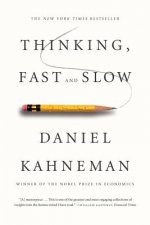
Thinking, Fast and Slow
77.32 zł -14 % -
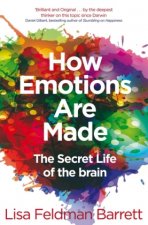
How Emotions Are Made
52.02 zł -23 % -
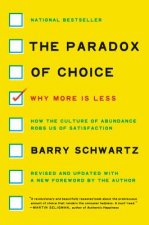
The Paradox of Choice
56.65 zł -23 % -

Five Minds for the Future
117.85 zł -4 % -
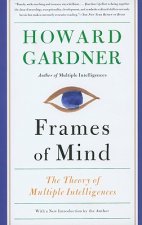
Frames of Mind
97.59 zł -13 % -

The Art of Thinking Clearly
36.59 zł -14 % -

250 Brief, Creative & Practical Art Therapy Techniques250 Brief, Creative & Practical Art Therapy Techniques
153.75 zł -5 % -
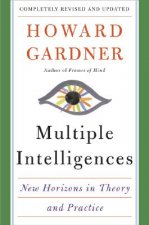
Multiple Intelligences
96.38 zł -
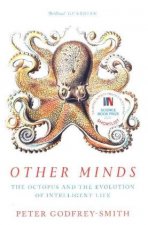
Other Minds
52.42 zł -15 % -
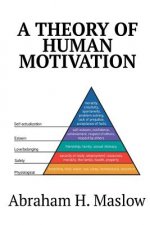
Theory of Human Motivation
30.74 zł -1 % -
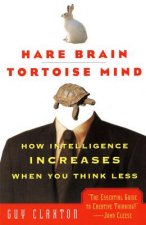
Hare Brain, Tortoise Mind
69.96 zł -10 % -
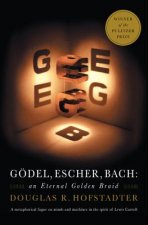
Gödel, Escher, Bach
105.86 zł -4 % -

The Memory Illusion
52.42 zł -15 % -

Where Good Ideas Come From
51.91 zł -23 % -

Present Moment in Psychotherapy and Everyday Life
217.17 zł -
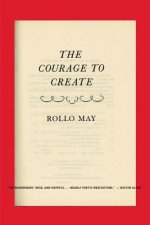
Courage to Create
65.12 zł -6 % -
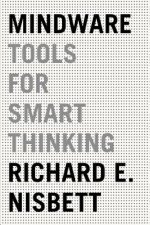
MINDWARE: TOOLS FOR SMART THINKING
77.63 zł -5 % -
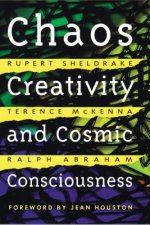
Chaos, Creativity, and Cosmic Consciousness
78.03 zł -14 % -

Love & Will
77.63 zł -5 % -
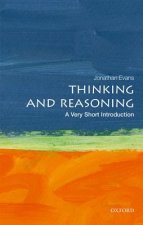
Thinking and Reasoning: A Very Short Introduction
43.45 zł -15 % -

White Bears and Other Unwanted Thoughts
97.59 zł -

Genius Frequency
99 zł -
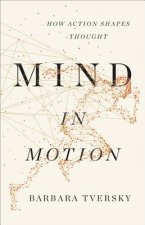
Mind in Motion
134.39 zł -12 % -

Willpower
52.02 zł -23 % -
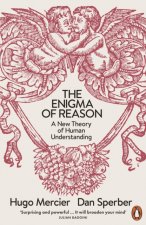
Enigma of Reason
51.91 zł -23 % -

WHY WE LOVE
85.69 zł -5 % -
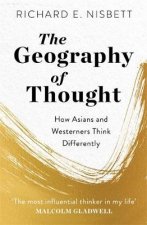
Geography of Thought
52.02 zł -23 % -

Getting Started with EEG Neurofeedback
217.37 zł -
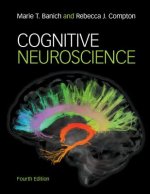
Cognitive Neuroscience
300.85 zł -

Eyewitness Testimony
204.97 zł -
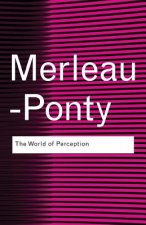
World of Perception
98.40 zł -5 % -

Trauma and Memory
93.45 zł -5 % -

Risk Savvy
52.42 zł -15 % -
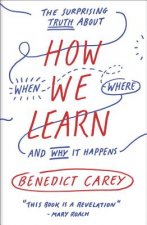
How We Learn
70.26 zł -14 % -

Patient H.M.
52.02 zł -23 % -
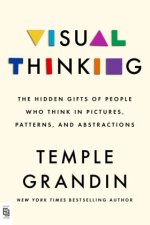
Visual Thinking
75.61 zł -24 % -
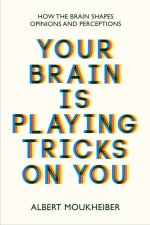
Your Brain Is Playing Tricks On You
47.38 zł -23 % -

Biggest Bluff
52.42 zł -15 % -
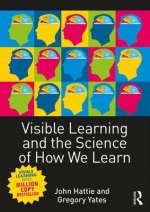
Visible Learning and the Science of How We Learn
211.32 zł -

Face Value
174.92 zł -5 % -

Power of Mindful Learning
81.76 zł -5 % -

Wednesday Is Indigo Blue
199.62 zł -

Handbook of Color Psychology
333.12 zł -

Searching For Memory
144.67 zł -

Natural History of Human Thinking
114.12 zł -

Medieval Craft of Memory
162.32 zł -

Oxford Handbook of Suicide and Self-Injury
276.25 zł -
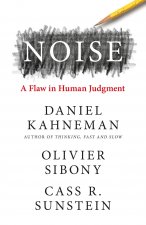
Noise
124.21 zł
zadowolonych klientów
Od roku 2008 obsłużyliśmy wielu miłośników książek, ale dla nas każdy był tym wyjątkowym.
Copyright! ©2008-24 libristo.pl Wszelkie prawa zastrzeżonePrywatnieCookies


 21 milionów książek
21 milionów książek Dostawa 10.99 zł
Dostawa 10.99 zł (32) 444 93 66 (8-15.30h)
(32) 444 93 66 (8-15.30h)